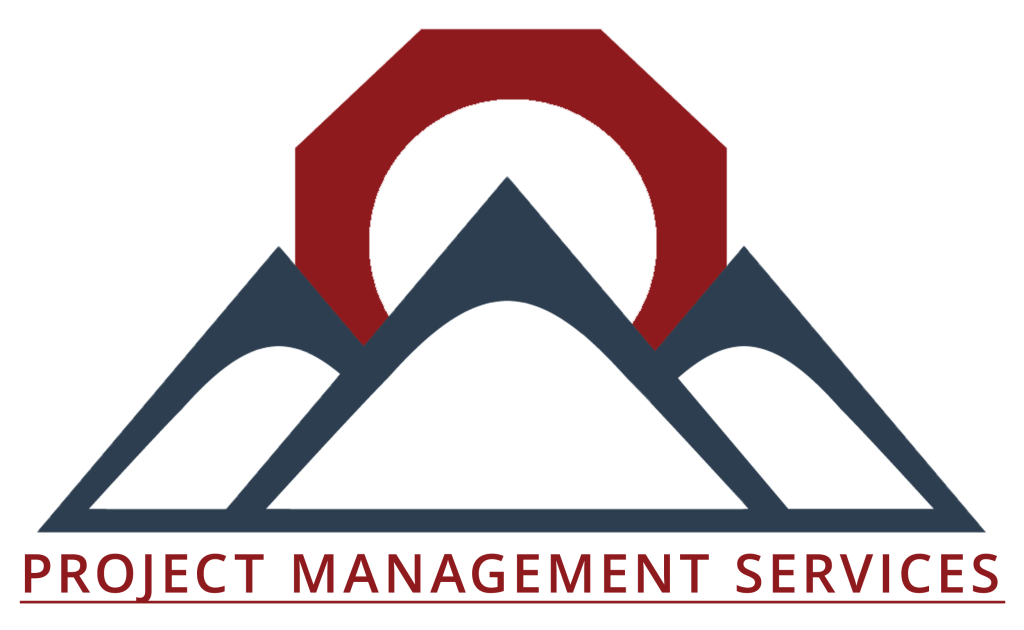Common Questions of 2025
How can I ensure my construction project stays on budget?
A general contractor oversees the entire construction or renovation project, managing various aspects like scheduling, budgeting, and coordinating subcontractors. Specialized contractors, on the other hand, focus on specific trades such as electrical, plumbing, or HVAC. By working with a general contractor, you ensure that all parts of the project are seamlessly integrated and managed, reducing the stress of handling multiple contractors on your own.
How do I choose the right general contractor for my project?
To choose the right general contractor, start by checking their credentials, such as licenses and insurance, and reviewing their portfolio of completed projects. Look for contractors with experience in projects similar to yours and ask for references from past clients. A reputable contractor will also provide a clear, detailed estimate and a realistic timeline for your project.
How do I navigate the permitting process for my construction project?
Navigating the permitting process involves understanding the specific regulations and requirements of your local municipality. It’s essential to start by consulting with your contractor, who should be familiar with local codes and able to guide you through the necessary paperwork. The process typically includes submitting detailed plans, scheduling inspections, and obtaining approval before beginning construction. Early preparation and clear communication with your contractor and local authorities can help prevent delays and ensure your project complies with all legal requirements.
GENERAL CONTRACTING
What is the difference between a general contractor and a specialized contractor?
A general contractor oversees the entire construction or renovation project, managing various aspects like scheduling, budgeting, and coordinating subcontractors. Specialized contractors, on the other hand, focus on specific trades such as electrical, plumbing, or HVAC. By working with a general contractor, you ensure that all parts of the project are seamlessly integrated and managed, reducing the stress of handling multiple contractors on your own.
How do I choose the right general contractor for my project?
To choose the right general contractor, start by checking their credentials, such as licenses and insurance, and reviewing their portfolio of completed projects. Look for contractors with experience in projects similar to yours and ask for references from past clients. A reputable contractor will also provide a clear, detailed estimate and a realistic timeline for your project.
How does the project management process work with a general contractor?
The project management process with a general contractor typically involves initial consultation and planning, followed by design, budgeting, and scheduling. The contractor then oversees the construction phase, coordinating all subcontractors and ensuring the work meets quality standards. Regular updates are provided to keep you informed, and a final walkthrough ensures the project meets your expectations.
What strategies do you use to minimize disruptions to business operations during a commercial construction project?
We develop a detailed plan that includes phased construction, off-hours work, and clear communication with your team to minimize disruptions. Our goal is to ensure your business can continue operating smoothly while we complete the project efficiently and with minimal impact on your day-to-day operations.
Add-On Services
What are add-on services?
Add-on services are supplementary construction services that enhance and support the main aspects of a project. These services typically include HVAC installation, demolition, electrical work, painting, and asbestos abatement. They are designed to address specific needs that arise during a construction or renovation process, providing a comprehensive solution that ensures all elements of the project are seamlessly integrated and completed to the highest standards. Add-on services help streamline the construction process by offering specialized expertise in areas that require particular attention or skill.
When should I consider upgrading my HVAC system?
A general contractor oversees the entire construction or renovation project, managing various aspects like scheduling, budgeting, and coordinating subcontractors. Specialized contractors, on the other hand, focus on specific trades such as electrical, plumbing, or HVAC. By working with a general contractor, you ensure that all parts of the project are seamlessly integrated and managed, reducing the stress of handling multiple contractors on your own.
What should I expect during a demolition project?
During a demolition project, safety is the top priority. The area will be secured, and any necessary permits will be obtained before work begins. The process involves removing unwanted structures or materials, and it can generate dust and debris, which will be managed to minimize disruption. Communication with your contractor throughout the process will ensure that the project proceeds smoothly and according to plan.
How can I ensure my electrical system is up to code?
Ensuring your electrical system is up to code involves regular inspections by a licensed electrician, especially if your home is older or has undergone renovations. Upgrading outdated wiring, installing proper grounding, and ensuring your breaker panel meets current standards are all essential steps. A professional electrician can identify potential hazards and bring your system up to code, ensuring safety and compliance with local regulations.
What are the steps involved in asbestos abatement, and is it necessary?
Asbestos abatement involves the safe removal or containment of asbestos materials, typically found in older homes. The process includes inspection, testing, removal or encapsulation, and proper disposal by certified professionals. Asbestos abatement is necessary if the material is damaged or deteriorating, as it can release harmful fibers into the air. If you suspect asbestos in your home, it’s crucial to have it professionally assessed to determine the appropriate action.
How do you ensure compliance with commercial building codes and regulations during add-on services?
Our team stays up-to-date with the latest commercial building codes and regulations, ensuring that all add-on services, such as HVAC, electrical, and demolition work, meet or exceed legal requirements. We conduct thorough inspections and maintain strict quality control throughout the project to ensure compliance and safety.
ROOFING
How do I know if my roof needs to be repaired or replaced?
Signs that your roof may need repair or replacement include missing or damaged shingles, leaks, sagging areas, and visible wear and tear. If your roof is more than 20 years old, it may be time for a replacement. A professional roofing contractor can conduct a thorough inspection and recommend the best course of action based on the roof’s condition and your budget.
What are the latest roofing materials and trends for 2024?
In 2024, popular roofing materials include energy-efficient options like cool roofs and reflective shingles, as well as sustainable materials like recycled metal and solar tiles. There is also a growing trend towards using durable synthetic materials that mimic the appearance of traditional roofing but offer better performance and longer lifespans.
How long does a roof replacement typically take?
The time required for a roof replacement depends on the size and complexity of the roof, as well as the weather conditions. On average, a standard residential roof replacement can take anywhere from 1 to 3 days. Your contractor will provide a more precise timeline based on the specifics of your project.
What are the benefits of installing a reflective or cool roof on my commercial building?
Installing a reflective or cool roof can significantly reduce cooling costs for your commercial building by reflecting more sunlight and absorbing less heat. This not only improves energy efficiency but also extends the lifespan of your roof by reducing thermal stress and lowering indoor temperatures.
RESTORATION
What are the most common types of restoration projects?
Common restoration projects include water damage restoration, fire and smoke damage restoration, mold remediation, and storm damage repair. These projects often involve not only repairing structural damage but also restoring the affected area to its pre-damaged condition, ensuring the safety and integrity of your home or business.
How quickly should I start a restoration project after damage occurs?
It’s crucial to start a restoration project as soon as possible after damage occurs to prevent further deterioration. For example, water damage can lead to mold growth within 24 to 48 hours, and fire damage can weaken structural elements if not addressed promptly. Immediate action helps minimize damage and reduces the overall cost of restoration.
Does insurance cover restoration services?
Insurance coverage for restoration services depends on the cause of the damage and your specific policy. Commonly, water damage from burst pipes, fire damage, and storm damage are covered by homeowner’s insurance. However, it’s essential to review your policy and work closely with your insurance company and contractor to ensure you receive the coverage you’re entitled to.
What is your approach to handling large-scale commercial restoration projects?
For large-scale commercial restorations, we mobilize a dedicated team with specialized equipment to address the unique challenges of your property. We focus on rapid damage assessment, coordinated recovery efforts, and efficient resource allocation to restore your business quickly and effectively.
EXTERIOR SERVICES
How can comprehensive exterior services improve the overall value and efficiency of my home?
Comprehensive exterior services, including siding, gutters, windows, doors, and fencing, significantly enhance your home’s curb appeal, energy efficiency, and structural integrity. Upgrading these elements not only improves the aesthetic appearance of your property but also increases its resale value by addressing critical areas that affect comfort, security, and long-term maintenance costs. Investing in high-quality exterior services can lead to lower energy bills, better protection against weather elements, and increased overall satisfaction with your home.
How do I choose the right siding material for my home?
The right siding material depends on several factors, including your budget, the climate, and your home’s architectural style. Popular options include vinyl, which is affordable and low-maintenance, fiber cement for its durability and resistance to harsh weather, and wood for its natural beauty. Consulting with a professional can help you weigh the pros and cons of each material to make an informed decision.
How often should gutters be cleaned, and when should they be replaced?
Gutters should be cleaned at least twice a year—once in the spring and once in the fall—to prevent clogs and ensure proper drainage. If your gutters are showing signs of rust, leaks, or are pulling away from the roof, it may be time to replace them. Seamless gutters, which are custom-fit to your home, are a popular replacement option due to their durability and minimal maintenance needs.
What are the benefits of upgrading to energy-efficient windows?
Upgrading to energy-efficient windows can significantly reduce your energy bills by improving insulation and reducing heat transfer. They also help maintain a consistent indoor temperature, reduce noise pollution, and enhance the overall comfort of your home. Additionally, energy-efficient windows can increase your home’s resale value and may qualify you for tax credits or rebates.
How often should I repaint my home’s exterior?
The frequency of repainting depends on several factors, including the quality of the previous paint job, the materials of your walls or siding, and exposure to weather conditions. Exterior surfaces may need repainting every 5-10 years. Regular repainting not only enhances the appearance of your home but also provides a protective layer against wear and tear.
How do I know if my doors need to be replaced?
Signs that your doors may need replacement include drafts, difficulty in opening or closing, visible damage like cracks or warping, and outdated design. Replacing old doors with new, energy-efficient models can improve your home’s insulation, security, and curb appeal. Modern doors also offer advanced locking mechanisms for added safety.




